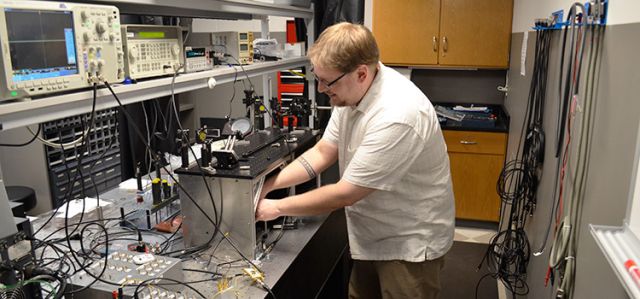Decoupled Stochastic Gradient Descent Optimization for Adaptive Optics: Integrated Approach for Wave-front Sensor Information Fusion
Document Type
Article
Publication Date
2-1-2002
Publication Source
Journal of the Optical Society of America A
Abstract
A new adaptive wave-front control technique and system architectures that offer fast adaptation convergence even for high-resolution adaptive optics is described. This technique is referred to as decoupled stochastic parallel gradient descent (D-SPGD). D-SPGD is based on stochastic parallel gradient descent optimization of performance metrics that depend on wave-front sensor data. The fast convergence rate is achieved through partial decoupling of the adaptive system’s control channels by incorporating spatially distributed information from a wave-front sensor into the model-free optimization technique. D-SPGD wave-front phase control can be applied to a general class of adaptive optical systems. The efficiency of this approach is analyzed numerically by considering compensation of atmospheric-turbulence-induced phase distortions with use of both low-resolution (127 control channels) and high-resolution (256×256 control channels) adaptive systems. Results demonstrate that phase distortion compensation can be achieved during only 10–20 iterations. The efficiency of adaptive wave-front correction with D-SPGD is practically independent of system resolution.
Inclusive pages
356-368
ISBN/ISSN
1084-7529
Copyright
Copyright © 2002, Optical Society of America
Publisher
Optical Society of America
Volume
19
Issue
2
Peer Reviewed
yes
eCommons Citation
Vorontsov, Mikhail, "Decoupled Stochastic Gradient Descent Optimization for Adaptive Optics: Integrated Approach for Wave-front Sensor Information Fusion" (2002). Electro-Optics and Photonics Faculty Publications. 115.
https://ecommons.udayton.edu/eop_fac_pub/115
COinS




Comments
One print or electronic copy may be made for personal use only. Systematic reproduction and distribution, duplication of any material in this paper for a fee or for commercial purposes, or modifications of the content of this paper are prohibited.
Permission documentation on file.